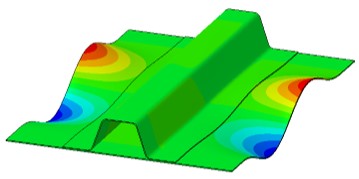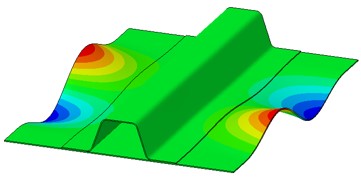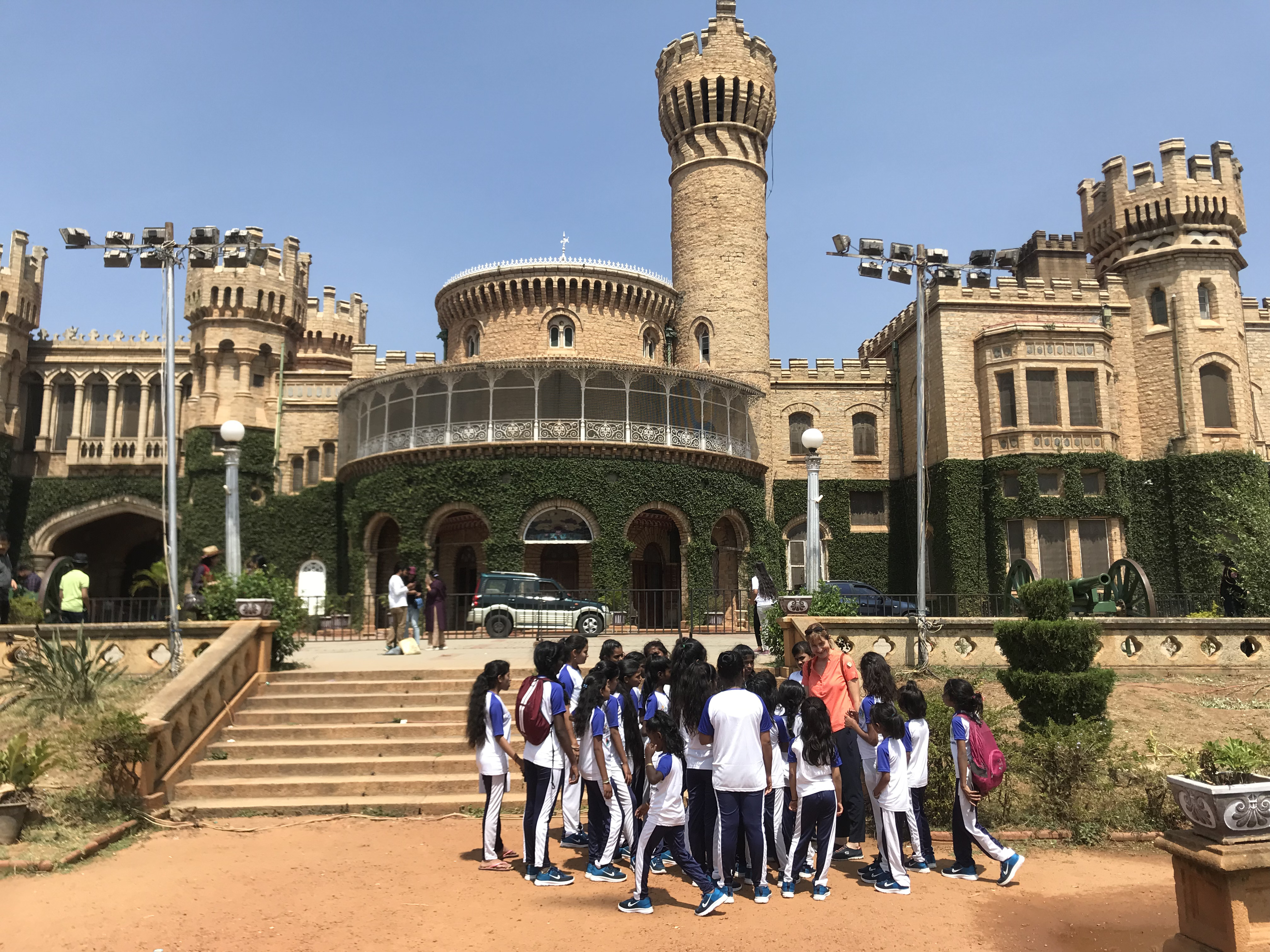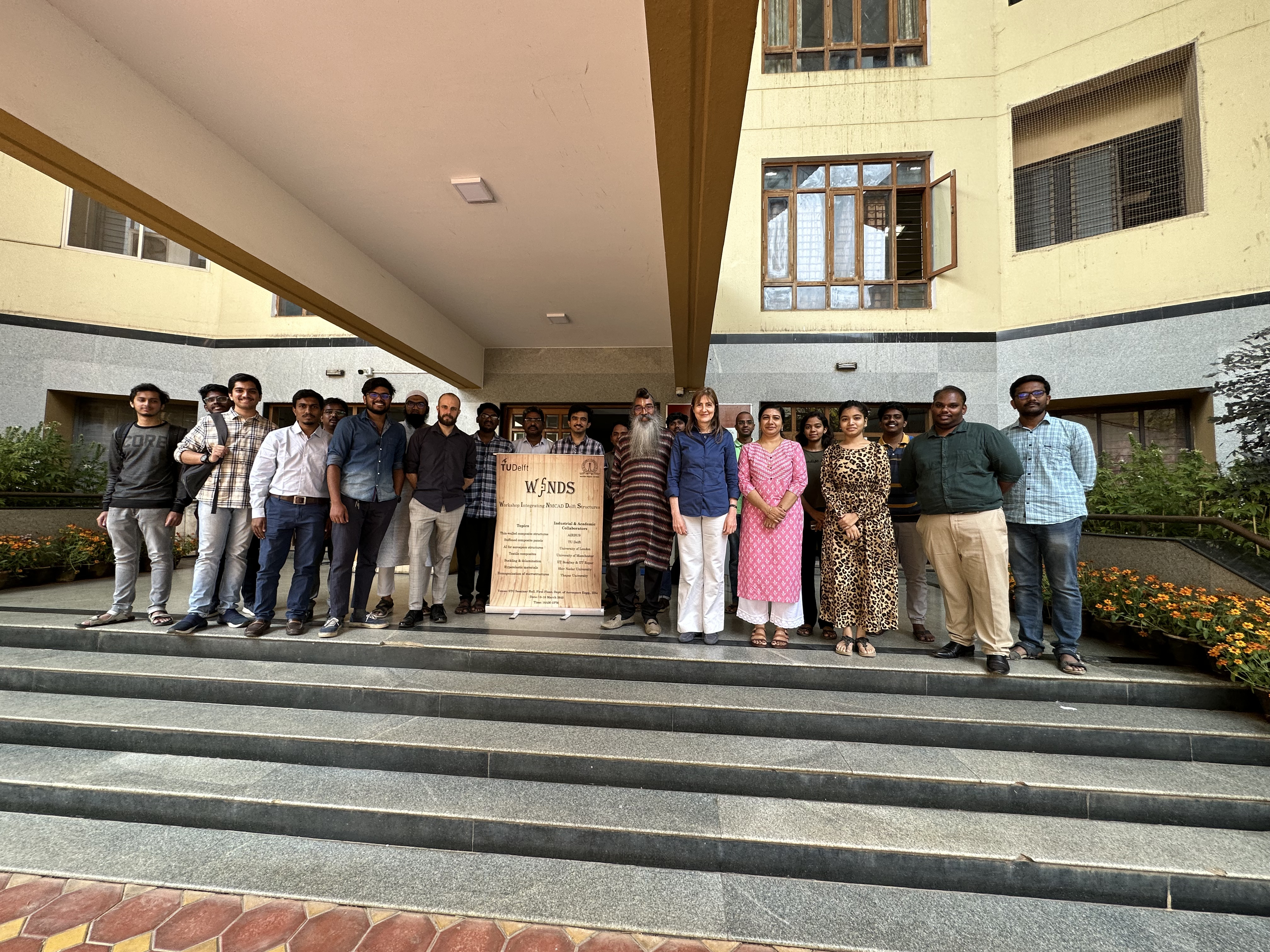Development of a nonlinear computational methodology for analysis and design of stiffened composite structures
Researchers from the Delft University of Technology (TU Delft) and the Indian Institute of Science Bangalore (IISc) have teamed up to develop a computational methodology to study the post-buckling behaviour and damage propagation of stiffened composite structures in aerospace. Professor Chiara Bisagni and postdoctoral researcher Javier Paz from the Faculty of Aerospace Engineering at TU Delft visited the Department of Aerospace Engineering at IISc in March 2023 to further advance this joint research with Professor Dineshkumar Harursampath and PhD candidate A. Phanendra Kumar from the Non-linear Multifunctional Composites Analysis and Design (NMCAD) Laboratory at IISc.
The research investigates aerospace structures made of fibre-reinforced composite materials. Primary aircraft composite structures are extremely interesting thanks to their high strength and stiffness to weight ratios. These structures can also withstand loads well over their buckling load, but the difficulties in controlling and predicting the non-linear response and complex damage mechanisms has led current designs to follow a conservative no-buckling approach under operational loads. New advanced numerical models are needed to tackle such problems, and to help speed up the process of aircraft design, analysis and certification.
This cooperative effort exploits the strengths of both research groups in the development of new advanced numerical models to analyse a single-stringer composite panel. The team of Prof. Harursampath at IISc is responsible for the development of a novel modelling methodology inspired by a mathematically rigorous and physics-based technique called the Variational Asymptotic Method (VAM), and the team of Prof. Bisagni at TU Delft is implementing high-fidelity numerical simulations (Figure 1) and provides experimental data to benchmark the methodology.
The visit of Prof. Bisagni and Dr. Paz included project-related meetings to compare and advance the analysis method and a four-day workshop, named Workshop Integrating NMCAD Delft Structures (WINDS) with over 20 speakers (Figure 2). There was also the opportunity to visit Airbus India Bengaluru and its Innovation Centre, where Prof. Bisagni gave a presentation. The stay in Bangalore reserved also a little bit of time to visit a couple of monuments, such as the Bangalore Palace, as an “outreach activity” with a local female school (Figure 3).



